Key Information
CPD Hours: 18 hours
Course Length: Six weeks
Course Format: An intensive tutor-moderated online learning experience. Resources include electronic course notes, videos and discussion forums with colleagues and tutors
Enrol Now
This course may run again in the future. To register your interest please contact us.
Alternatively you can download and email using our Registration Form
Course Information
- Preparation of high quality blood smears (that can be examined efficiently) with additional advanced techniques (e.g. PCV <10%)
- Top tips for using Diff-Quik type stains, alternative staining options
- Optimal microscope setup and maintenance/care that helps the efficient use
- Systematic approach to the examination of a blood smear
- Assessment of smears for platelet clumping and estimating platelet concentration
- How to recognise regenerative anaemia (in <10 seconds) and key red blood cell morphological changes
- White blood cell morphology and differential counts, neutrophil left shift and toxicity (what the machines can’t recognize)
- Strength and weakness of in-house analysers vs. sending samples away
- Top tips for fine needle biopsy samples of lumps and bumps
- Smear preparation techniques for aspirates, fluids to achieve highly diagnostic samples
- Key cytology concepts in lumps and bumps cytology, fluids and lymph nodes
Would you like to be able to provide invaluable nurse support to haematology and cytology cases in your practice? Are you able to consistently make high quality blood smears and examine them efficiently in the microscope?
The ever widening availability of in house haematology analysers have brought about a gap in knowledge of blood smear examination, which is essential for the reliable and safe use of these machines in the veterinary practice. Veterinary nurses can provide invaluable benefit to the veterinary practice by being able to perform an efficient blood smear examination, which can validate the in-house analysis, detect key abnormalities (that the machines can’t), and flag potential need for expert review. Nurses can also provide great help to perform cytological examination of lumps, bumps, organs, fluids, from collection to smear preparation to microscopic examination and/or submission to external laboratories.
The first half of the course (haematology) helps nurses to develop the necessary skills to prepare high quality blood smears, to perform optimal staining, to best setup the microscope for blood smear examination, and to carry out a systematic, highly efficient (3-5 min) blood smear examination in order to achieve the above mentioned goals. Strength and weakness of such analysers will also be discussed.
In the second half of the course top tips will be shared to improve aspiration technique to provide more diagnostic samples, and also new techniques will be taught. We will also discuss how to achieve good staining, and will work on microscopic skill development, which will help with efficiency during the use of a microscope.
The course runs with weekly webinars with specific aspects of haematology and cytology for each week with additional videos, simulators, quizzes and other materials provided to achieve the above goals. An active tutor-moderated discussion forum is also used to discuss any questions regarding technique, study cases, specific topics in haematology and cytology, and participants’ cases.
Why do this course?
You will improve your skills and efficiency in preparing and assessing high quality blood smears and cytological samples.
Barbara Glanemann, DrMedVet DipECVIM PGDipVetEd FHEA MRCVS
Associate Professor in Small Animal Medicine
The Royal Veterinary College
Balazs Szladovits, DVM DipACVP PGDipVetEd MRCVS
Associate Professor in Clinical Pathology
The Royal Veterinary College
Relevant CPD courses you may find of interest
Haematology and cytology for small animal practitioners online
Webinar Plus: Supporting students in practice – diving deeper into clinical coaching and mentoring
Emergency and critical care nursing online
Diagnostic imaging techniques online for nurses
Small animal medical nursing online
Anaesthesia and analgesia for veterinary nurses online
Webinar Plus: A coaching approach to line management and leadership in the veterinary workplace
Webinar Plus: Master how to thrive (not just survive) in veterinary practice
Webinar Plus: Overcoming challenges to communication in practice

